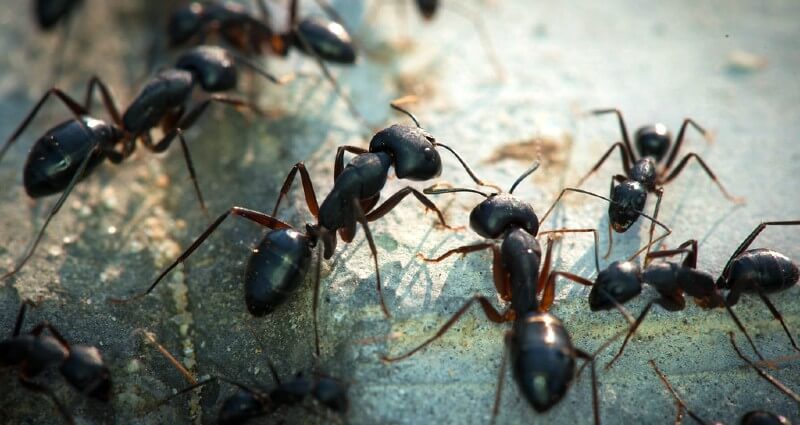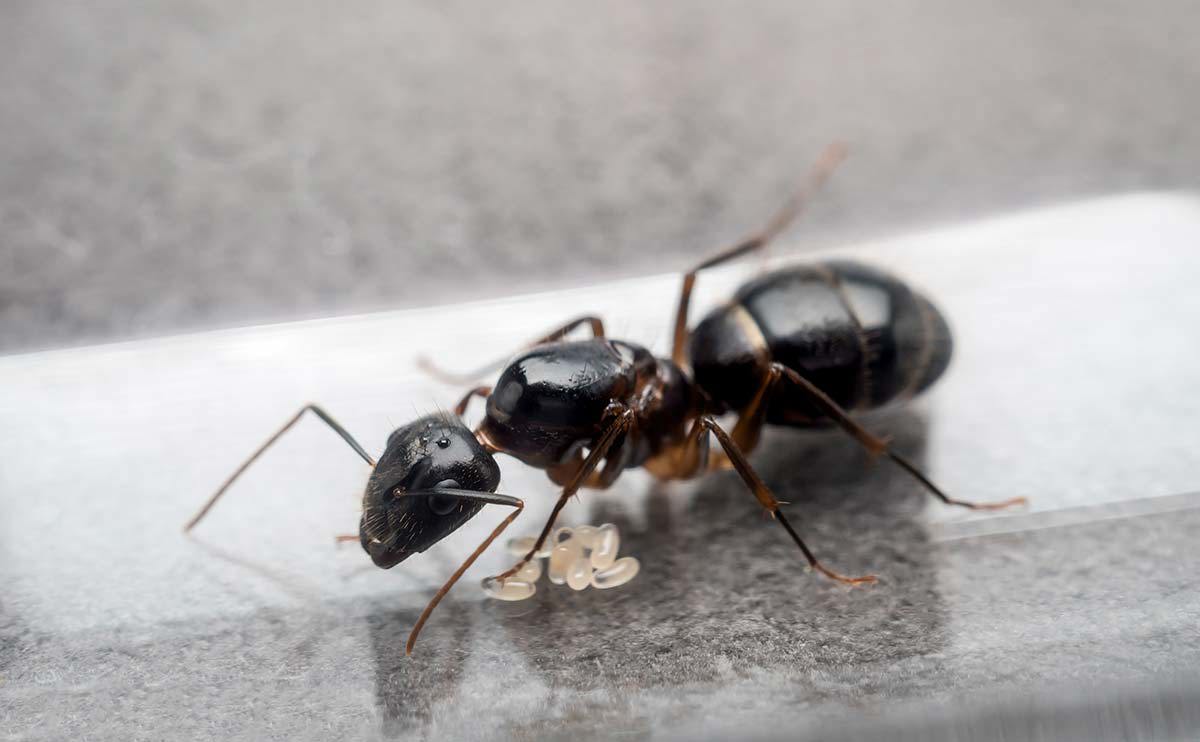Why Select Our Termite Control Services: Professional Solutions for Effective Security
Why Select Our Termite Control Services: Professional Solutions for Effective Security
Blog Article
Ecological Impact of Pest Control: Harmonizing Effectiveness With Sustainability
The ecological effect of insect control is a vital issue that calls for a delicate balance in between achieving performance in handling bugs and ensuring sustainability of our ecosystems. From the use of hazardous chemicals that seep into our dirt and water to the unplanned consequences on non-target types, the effects of traditional insect control techniques are far-ranging.
Harmful Chemicals in Pest Control
The usage of dangerous chemicals in insect control presents substantial environmental and health and wellness dangers that necessitate cautious factor to consider and reduction techniques. Herbicides, pesticides, and pesticides are frequently utilized to get rid of pests, yet their widespread application can result in unplanned consequences. These chemicals can contaminate dirt, water resources, and the air, influencing not only the targeted bugs yet likewise useful bugs, wildlife, and human beings.

To address these dangers, incorporated bug management (IPM) methods are being advertised as a much more lasting choice. IPM includes a combination of techniques such as organic control, environment manipulation, and the targeted use pesticides as a last hope (ant control clayton nc). By taking on an all natural strategy to pest control, we can lessen the ecological and health impacts associated with harmful chemicals while successfully taking care of pest populations
Impact on Non-Target Variety
Taking into consideration the unplanned effects of parasite control techniques, the influence on non-target species is an important facet that requires comprehensive evaluation. While pest control steps aim to target specific bugs, various other organisms in the ecological community might be inadvertently impacted. Non-target types, consisting of advantageous insects, birds, mammals, and also plants, can experience indirect or direct injury from chemical applications or organic control methods.
Insecticides designed to combat a certain insect pest might harm pollinators like bees or all-natural killers such as ladybugs. Biological control agents, if not species-specific, can position threats to unexpected targets, interrupting the environmental balance.
To mitigate the influence on non-target types, integrated bug management (IPM) methods that stress an all natural method to pest control are suggested. These techniques focus on making use of eco-friendly techniques, reducing damage to helpful microorganisms while effectively taking care of pest populaces. Conducting extensive threat evaluations and keeping an eye on the end results of bug control initiatives are vital steps in securing non-target types and advertising general community health.
Dirt and Water Contamination
Unintentional environmental effects of pest control approaches prolong past affecting non-target species, with considerable implications for soil and water contamination. Chemicals, herbicides, and chemical plant foods utilized in insect control can leach into the dirt and contaminate groundwater, presenting a hazard to both earthbound and water environments. Dirt contamination can disrupt the equilibrium of microorganisms crucial for nutrition biking and plant growth, causing decreased soil fertility and productivity. These chemicals can linger in the atmosphere for prolonged durations, accumulating in the dirt and possibly getting in the food chain.
Water contamination is one more vital issue connected with insect control methods. To minimize dirt and water contamination from bug control activities, incorporated pest management strategies that focus on sustainability and lessen chemical inputs are vital.
Air Pollution From Chemical Use
Exposure to air-borne pesticides throughout farming applications poses a considerable issue for air contamination control actions. Furthermore, chemical drift, where pesticides are brought by the wind to unintended locations, can lead to the contamination of neighboring ecosystems and water bodies.

Approaches for Sustainable Pest Control
In the realm of farming methods, carrying out lasting parasite control methods is extremely important for maintaining environmental balance and safeguarding plant returns. Sustainable pest control stresses making use of Learn More eco-friendly methods to manage parasite populations properly while reducing damage to non-target organisms and ecosystems. Integrated Insect Administration (IPM) is a commonly taken on technique that incorporates biological, cultural, physical, and chemical control approaches to attain long-term insect monitoring services.
Crop turning and diversification are additionally effective techniques to disrupt pest life cycles and develop much less beneficial conditions for pests to flourish. Inevitably, by integrating these sustainable bug control techniques, farmers can attain a balance between pest monitoring performance and environmental stewardship.
Conclusion
In conclusion, the ecological influence of parasite control techniques should be thoroughly taken into consideration to balance performance with sustainability. Harmful chemicals utilized in insect control can lead to dirt and water contamination, air pollution, and harm non-target varieties - termite control. It is essential to apply sustainable insect control approaches to minimize these unfavorable impacts on the setting and advertise a healthier ecosystem for future generations
By embracing an all natural method to pest control, we can reduce the ecological and wellness effects linked with hazardous chemicals while effectively taking care of pest populations.

To mitigate the air pollution triggered by chemical usage, it is vital to embrace incorporated bug management strategies that prioritize the use of non-chemical parasite control techniques, such as plant turning, natural killers, and resistant crop selections. Sustainable bug control emphasizes the use of ecologically friendly approaches to handle bug populaces efficiently while decreasing damage to non-target organisms and environments. Integrated Parasite Management (IPM) is a commonly taken on approach that integrates biological, social, physical, and chemical control approaches to accomplish lasting insect administration services.
Report this page